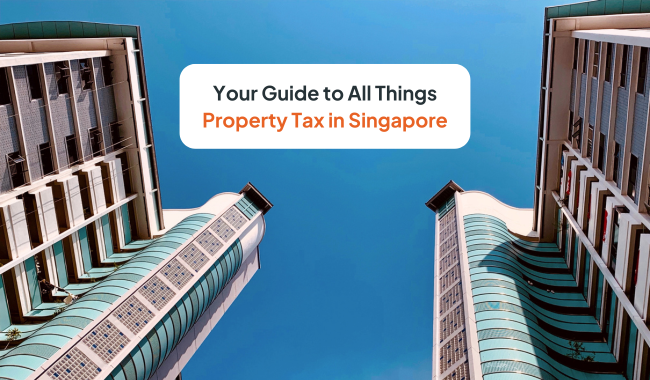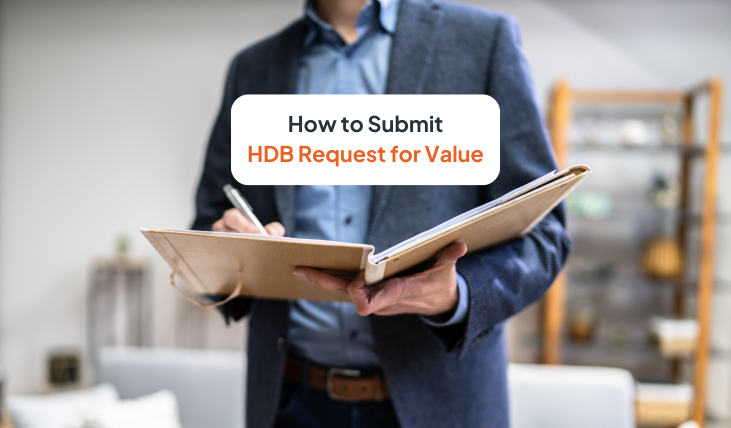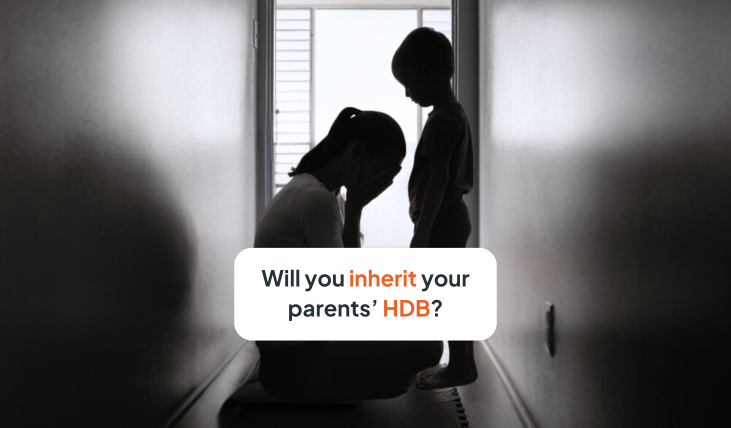What is the Annual Value (AV) of your home and how is it used to calculate your Property Tax? What are the key changes that Finance Minister and Deputy Prime Minister Lawrence Wong announced at Budget 2024 and how does it affect you? Here’s everything you need to know about Property Tax in Singapore.
All you need to know about Property Tax in Singapore
What is Property Tax in Singapore?
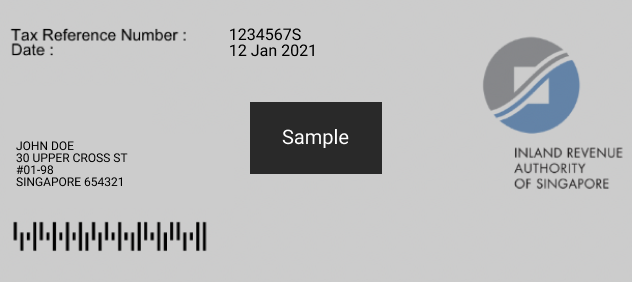
Property Tax in Singapore is a tax levied on property ownership, applicable whether the property is rented out, owner-occupied, or vacant. The tax is calculated based on the Annual Value (AV) of the property, which is an estimate of its potential rental income, as determined by the Inland Revenue Authority of Singapore (IRAS).
What is Annual Value (AV)?
The Annual Value (AV) of a property in Singapore is the estimated gross annual rent that could be collected if the property were rented out, excluding furniture, furnishings, and maintenance fees. It is determined by IRAS based on the estimated market rentals of similar or comparable properties.
The use of AV as a basis for Property Tax calculation ensures that the tax amount reflects the potential income that the property could generate, making it a fair and equitable system for property taxation in Singapore.
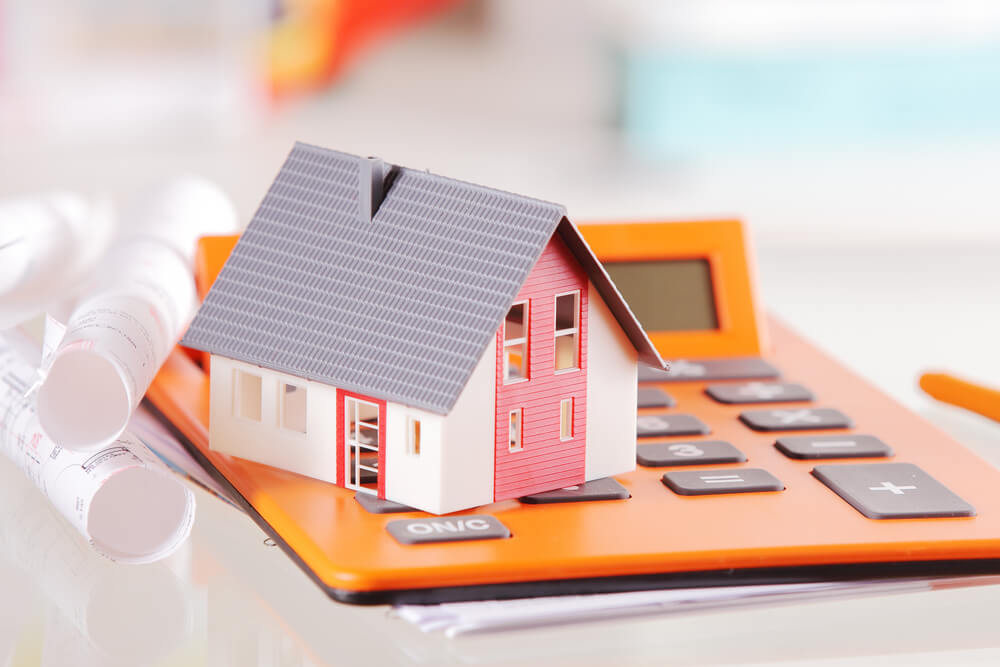
How to calculate your Property Tax using your AV
Property Tax in Singapore is calculated by multiplying the AV of the property with the applicable tax rates. i.e. Property Tax to be paid = AV of the property x Property Tax Rates
There are different tax rates for owner-occupied and non-owner-occupied residential properties, with owner-occupied properties enjoying lower tax rates — starting from 0% for the first $8,000 of AV and increasing to 23% for AV above $100,000 — due to the progressive tax structure designed to make it more affordable for homeowners living in their properties.
What’s your AV?
To find out the AV of your property, simply log onto mytax.iras.gov.sg with your Singpass. It’s free!
If you’re hoping to find out the AV of a property that isn’t under your name yet, there’s also a Check Annual Value of Property digital service that you can use, though you’ll have to pay $2.50 for each search. It’s payable by VISA or MasterCard (credit/debit card) or eNETS (Direct Debit).
Budget 2024 updates
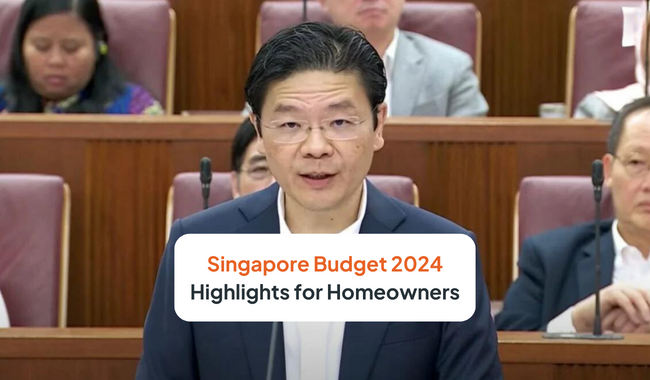
#1: AV bands for owner-occupied properties will be raised in 2025
Starting in 2025, there will be revisions to the tax rates for the AV bands of owner-occupied residential properties: The lowest AV band threshold will be raised from $8,000 to $12,000, and the highest threshold will increase from over $100,000 to over $140,000. Corresponding adjustments will be made to bands in between.
| Marginal Property Tax Rate | Portion of AV from 1 Jan 2024 to 31 Dec 2024 | Portion of AV from 1 Jan 2025 |
|---|---|---|
| 0% | $0 – $8,000 | $0 – $12,000 |
| 4% | > $8,000 – $30,000 | > $12,000 – $40,000 |
| 6% | > $30,000 – $40,000 | > $40,000 – $50,000 |
| 10% | > $40,000 – $55,000 | > $50,000 – $75,000 |
| 14% | > $55,000 – $70,000 | > $75,000 – $85,000 |
| 20% | > $70,000 – $85,000 | > $85,000 – $100,000 |
| 26% | > $85,000 – $100,000 | > $100,000 – $140,000 |
| 32% | > $100,000 | > $140,000 |
This adjustment aims to maintain the equitable distribution of tax burden, with owners of high-end properties bearing the majority of the load, while the rest of Singaporeans pay the same or potentially reduced Property Tax rates.
This means homeowners can expect to pay the same or lower property taxes at each band, assuming there is no change in their AVs and before any rebate.
#2: Up to 100% Property Tax rebates in 2024
The one-off rebate of up to 100% applies to all owner-occupied residential properties and will be tiered to maintain a progressive Property Tax regime in Singapore, and to ensure that those with greater means pay their fair share of taxes.
2024 Property Tax rebates for owner-occupied residential properties
| Property Type | One-off Property Tax Rebate in 2024 |
|---|---|
| 1-room and 2-room HDB | 100% |
| 3-room HDB | 70% |
| 4-room HDB | 50% |
| 5-room HDB | 40% |
| Executive HDB | 30% |
| Private Properties | 15% (with a cap of $1,000) |
Property tax for the bottom half of private property owner-occupiers will increase by less than $15 a month, while the tax increase will be higher for those with higher-value properties.
HDB Property Tax payable: Before and after 2024 rebates
| HDB Flat Type | Average Property Tax Payable in 2024 (After Rebate) | Average Increase in Property Tax Payable (After Rebate) |
|---|---|---|
| 3-room flat | $4.10 per month | $1.50 per month |
| 4-room flat | $12.80 per month | $2.40 per month |
| 5-room flat | $17.90 per month | $4.30 per month |
| Executive HDB | $22.30 per month | $6.30 per month |
Property Tax rates in 2023 vs 2024
| Annual Value ($) | 2023 Tax Rate | 2023 Property Tax ($) | 2024 Tax Rate | 2024 Property Tax ($) |
|---|---|---|---|---|
| First $8,000 Next $22,000 | 0% 4% | $0 $880 | 0% 4% | $0 $880 |
| First $30,000 Next $10,000 | – 5% | $880 $500 | – 6% | $880 $600 |
| First $40,000 Next $15,000 | – 7% | $1,380 $1,050 | – 10% | $1,480 $1,500 |
| First $55,000 Next $15,000 | – 10% | $2,430 $1,500 | – 14% | $2,980 $2,100 |
| First $70,000 Next $15,000 | – 14% | $3,930 $2,100 | – 20% | $5,080 $3,000 |
| First $85,000 Next $15,000 | – 18% | $6,030 $2,700 | – 26% | $8,080 $3,900 |
| First $100,000 Above $100,000 | – 23% | $8,730 | – 32% | $11,980 |
2024 Owner-occupier tax rates
The Property Tax rates in the table below will be effective from 1 Jan 2024 to 31 Dec 2024.
| Annual Value ($) | Tax Rate w.e.f 1 Jan 2024 to 31 Dec 2024 | Property Tax Payable |
|---|---|---|
| First $8,000 Next $22,000 | 0% 4% | $0 $880 |
| First $30,000 Next $10,000 | – 6% | $880 $600 |
| First $40,000 Next $15,000 | – 10% | $1,480 $1,500 |
| First $55,000 Next $15,000 | – 14% | $2,980 $2,100 |
| First $70,000 Next $15,000 | – 20% | $5,080 $3,000 |
| First $85,000 Next $15,000 | – 26% | $8,080 $3,900 |
| First $100,000 Above $100,000 | – 32% | $11,980 |
2025 Owner-occupier tax rates
The Property Tax rates in the table below will be effective from 1 Jan 2025.
| Annual Value ($) | Tax Rate w.e.f. 1 Jan 2025 | Property Tax Payable |
|---|---|---|
| First $12,000 Next $28,000 | 0% 4% | $0 $1,120 |
| First $40,000 Next $10,000 | – 6% | $1,120 $600 |
| First $50,000 Next $25,000 | – 10% | $1,720 $2,500 |
| First $75,000 Next $10,000 | – 14% | $4,220 $1,400 |
| First $85,000 Next $15,000 | – 20% | $5,620 $3,000 |
| First $100,000 Next $40,000 | – 26% | $8,620 $10,400 |
| First $140,000 Above $140,000 | – 32% | $19,020 |
Frequently Asked Questions about Property Tax in Singapore
1. Do I pay owner-occupier or non-owner-occupier taxes on my residential property?
The property tax rate applied to you is found on your property tax notice and bill. You can log in to mytax.iras.gov.sg and view your Property Dashboard.
2. What is my tax rate if I own and occupy more than one residential property?
The owner-occupier tax rate is only granted to the first property you own and occupy. All subsequent properties are taxed at the non-owner-occupier residential tax rates regardless of whether it is your second home.
3. Do I have to inform IRAS when I change the usage of my owner-occupier property?
Yes, you have to notify IRAS in writing within 15 days from the date of the change.
4. Do I have to pay property tax on my vacant property?
Property taxes apply whether a property is rented out, owner-occupied, or vacant. As a result, everybody needs to pay property taxes on their properties regardless of whether it is occupied or not.
Should you buy, sell, or rent your property?

There’s no one-size-fits-all strategy when it comes to transacting a property. For some, it’s good to sell now, while others could do with some waiting. The same goes for those looking to buy. To get a personalised property plan, drop us a message on WhatsApp or ask us your questions via our Live Chat at the bottom, right-hand corner of the screen.
Stay updated on your home valuation and all the latest property transactions in your block and area

Editor’s Note: This post was originally published in February 2022 and has been updated for accuracy and comprehensiveness.






















































